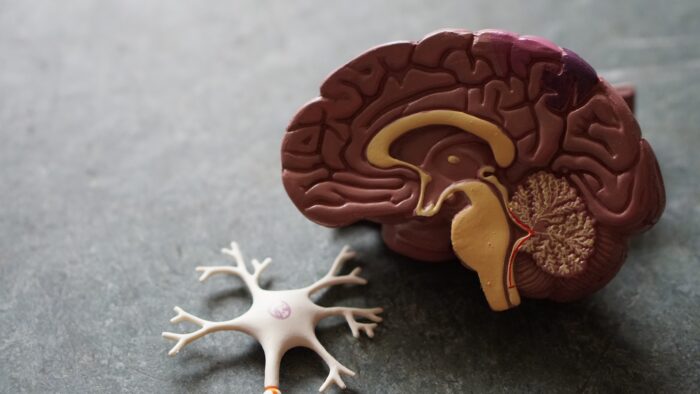The ayurvedic sciences, known as the oldest medical treatises, highlighted the inextricable relationship between the living body, the mind, and the gut and understood the connection between physical and mental illnesses. Most sickness is rarely only physical or only mental, and usually involves both the body and the mind to varying degrees. When the body suffers more than the mind, a physical disorder is diagnosed. When the psyche suffers more than the body, a mental disorder is diagnosed. Indeed, most disorders involve both body and mind. However, from the western perception the term psychosomatic has a common meaning that the disease is not real, as it is rooted only in the mind. It infers that the person has created physical disorder from the invention of the mind, and the term is derogatory in mainstream medicine, as if to emphasize that real disease occurs only in the body, called "organic illness" that can be measured by quantitative laboratory markers and measures.
Are the origins of body illness independent of mental processes? When a person falls into the trend of eating packaged foods and junk foods that baffle the gut and challenge the metabolism, there is certainly a mental component in the choices made to put those foods in the body. The disconnection of body-mind allows the hands to feed the mouth those foods. Perhaps some do not realize the connection between those foods and the immediate or eventual suffering from minor stomach issues such as bloating, indigestion, acid reflux, or constipation. Complaints from the gut are dismissed as minor, and food is so enjoyable that they are swatted away with a quick pill or syrup.
These signals from the gut are the true origins of your crippling tension headaches, anxiety, and uneasiness. Disease manifestation is a severe consequence. However, the shad-ripu, or six psychological emotions of kama, krodha, lobha, moha, mada, and matsya (lust/desire, anger/wrath, greed, delusion/desire, ego/arrogance, and jealousy/attachment) have a subtle relationship connecting the body and mind. Commonly known as the six enemies of the mind, they are elaborated in philosophical texts for mastering the mind, though ayurveda begins its discourse by stating that lack of control over these emotions are the origins for our diseases.
रागादिरोगान् सततानुषक्तानशेषकायप्रसृतानशेषान्॥१॥
औत्सुक्यमोहारतिदान् जघान योऽपूर्ववैद्याय नमोस्तुतस्मैः
Source: Ragaadi Rogan: Deeper meaning, https://spiritualessence.in/
Diseases of the gastrointestinal tract, such as anorexia, dyspepsia, vomiting, and diarrhea, are known to have a mental component. For some, even the mere thought of something disagreeable can result in vomiting. Diarrhea may happen from fear. Lack of appetite may be caused by psychological factors. Dyspepsia can be caused by mental health issues. When a hungry person with a good appetite learns of the death of a best friend or a close relative, s/he may lose their appetite.
The neurochemicals of emotion, such as serotonin and dopamine, are plentiful in the gut. In fact, over 90% of the brain mood regulator serotonin is made in the gut, some assisted by the gut bacteria in the microbiome. As Ayurveda looks presciently at patterns in the body to determine the course of disease while modern science looks at the molecules, combined understanding is now pointing to the fact that our psychological states are inextricably linked to what we intake.
Recent research has focused on the gut's nervous system, also called the enteric (ENS) or intrinsic nervous system, a mesh-like network of neurons that governs the all gastro-intestinal function from mouth to anus. The intestines and stomach have more nerve tissues and fibers than the entire spinal cord. As a result, the gastro-intestinal system, or ENS, is also referred to as a mini-brain. Stress, anxiety, depression, when it takes over the mind, an array of chemicals and hormones emancipates from the brain into the mini-brain or the ENS. These chemicals and hormones can either increase or decrease gut functions.
Disturbances in the mind will alter the nervous system and send signals to the gut, which then impede the smooth functioning of the Gut-Brain Axis, also affecting other body systems. The opposite is also possible, with imbalances in the gut creating GI and metabolic disorders which are then associated with mental disturbances and diseases.
The great ayurvedic teachers known as acharyas tried to help us understand this link by describing our mental and psychological states through mental qualities known as manasic doshas, sattva, rajas, and tamas; and through the themes that act through 5 physical elemental forces known as the tridosha, vata, pitta, kapha. Sattva signifies the body-mind being in harmony with the environment. Rajas describes the body-mind having a dynamic self-sense of being. Tamas describes the body-mind detached or lacking in harmony with the environment.
This mind-body connection is elaborated on many levels from subtle energies to chemicals of the body to visible human behaviors and reactions. It acknowledges the continuum of the living, which includes the body, senses, mind, and soul. The tridosha and the manasic dosha work together to synchronize and nourish the living entity.
On a practical level, when we spend time understanding how to be in harmony with our outer environment and finding peace and happiness in our inner self from those decisions, we create balance between our mind and body, especially our gut. When we understand situations in which we should back away or disengage, we create disruption with the chaos of our outer environment but create peace and happiness in our inner self from those key decisions.
And when we need to be active and create change or run fast to conquer the problems in our environments, we inject a little dynamic rajas into our actions and thoughts, and create the change needed to rebalance body-mind and environment. As the environment cycles through vata, pitta, and kapha times of day and seasons, we can feel the impact of our actions on our own internal vata, pitta, and kapha. When the three doshas, vata, pitta, and kapha, and the two manasic doshas, rajas and tamas, work in harmony, the result is a body that is happy and productive.
The doshas are not only affected by our emotions and how we feel after taking actions, but they are also affected by flows and forces inside the body as it metabolizes. In addition, the gut has 100 trillion bacteria of different types that live in their own universe, pushing and pulling for space and creating chemicals that interact with our gut. They want a fresh delivery of foods they like, such as prebiotic vitamins, short-chain fatty acids, and friendly bacteria found in yogurt, pickles and fermented foods. They also detest preservatives, fillers, binders, non-nourishing colors and chemicals, and artificial sweeteners. But each person has a unique universe of bacteria, and so we must eat appropriately for them to flourish and help us keep a healthy gut.
The consumption of diets that do not rebalance our gut, combined with irregular eating patterns and habits that distract us from eating fully, causes these doshas to go haywire, resulting in pathologic conditions rather than nourishing the gut. These disturbances cause our body's agni (digestive fire) to malfunction. The imbalances that follow are often the start of a cascade of diseases beginning with inflammation.
Ayurveda advises us that all diseases are the byproduct of a disrupted agni (metabolism), particularly gastrointestinal disorders. Weak digestion or indigestion is caused by diminished agni or digestion errors. The first step to rebalancing the gut fire is to assess your habits around eating. Do you eat with the seasons? Do you eat in a quiet pleasant space, without wind, direct sunlight, or loud noises? Are you distracted by TV or phone?
To work our way back to the connected body-mind state of living, we must be conscious not only what goes into our vast metabolic machinery, but how. Things that siderail our intake of food include actions taken by our mind, as well unharnessed feelings and unprocessed emotion. They can bring the entire system to a halt.





